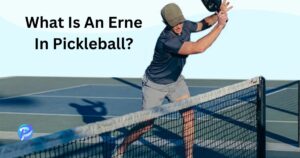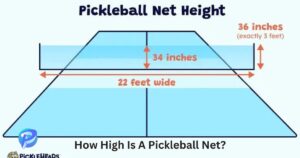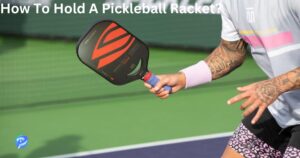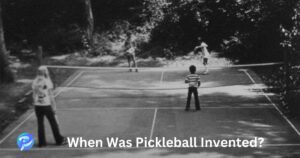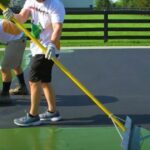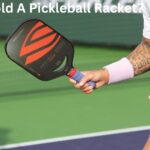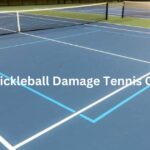Pickleball, a fusion of tennis, badminton, and ping pong, thrives on its rules, shaping the gameplay. Hitting an out ball in pickleball, it means your shot lands outside the playing area. When this happens, the other team gets a point, and they get to serve next. It’s like hitting the ball out of bounds in soccer and you lose a chance to score.
Hitting an out ball in pickleball can alter the game’s dynamics instantly. What transpires next often determines the fate of the ongoing match. Hitting an out ball in pickleball can totally change the game. What happens if you hit an out ball in pickleball? It’s like sending the ball out of bounds in a game of tag where you give the other team a point and lose your chance to score.
The scenario of hitting an out ball prompts questions about the game’s continuity, points distribution, and the players strategic advantage. When you hit an out ball in pickleball, it means the ball goes outside the lines.Hitting the ball inside the lines is super important to win.
What Is a Fault?
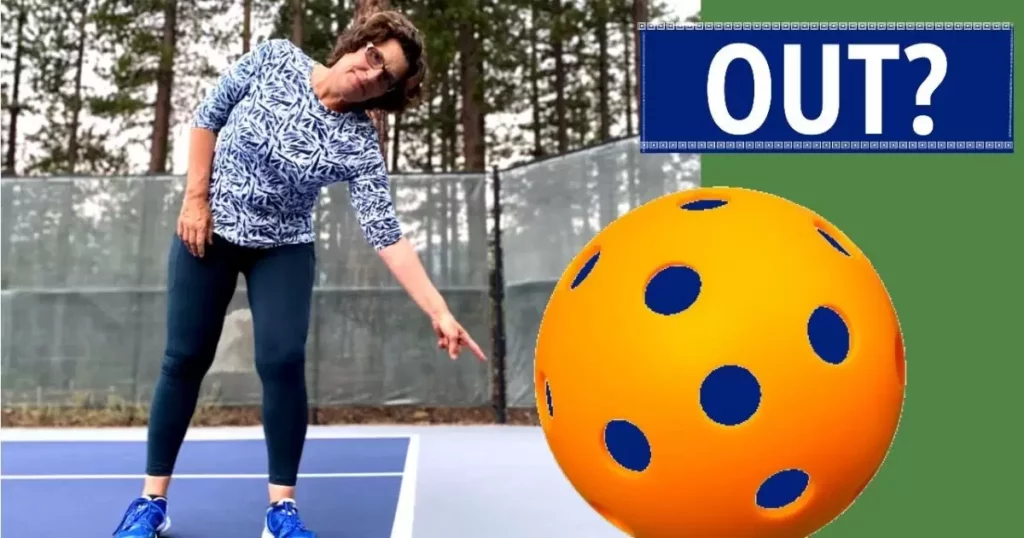
In pickleball, a fault refers to various infractions that result in the loss of a rally or point. One common fault is hitting an out ball, where the ball lands outside the court boundaries. This fault awards a point to the opposing team and can disrupt the flow of the game, impacting the overall score.
What Causes a Fault in Pickleball?
Several actions can lead to a fault in pickleball. Common causes include hitting the ball out of bounds, serving incorrectly (such as foot faults or serving into the wrong court), volleying before the ball bounces in the non-volley zone, or touching the net during play. These faults result in penalties like point loss or the loss of serve.
What Is a Dead Ball?
In pickleball, a dead ball refers to a point-ending situation. It occurs when a rally ends due to a fault, let serve, or when the ball becomes hindered, making it impossible to continue play. When the ball is declared dead, the point concludes, and the next serve or rally begins.
The Impact on the Game
When an out ball is hit in pickleball, its impact on the game is significant. The moment the ball lands outside the court’s boundaries, it signals a point for the opposing team. This single act not only awards points but also serves as a pivotal momentum shift. It affects serving rotations, altering the flow of the match. Such occurrences demand strategic adaptation and can dictate the ultimate outcome of the game.
Out Ball Defined
An out ball in pickleball is straightforward: it’s when the ball lands outside the designated court boundaries. This simple distinction marks the shot as ineligible and triggers consequences for the team responsible. Identifying an out ball is pivotal, as it immediately grants the opposing team a point, impacting the dynamics of the game.
Consequences of Hitting an Out Ball
When a player hits an out ball in pickleball, it’s more than just a minor misstep. This action grants the opposing team a point, instantly altering the score. The consequences extend beyond a mere point loss; it also relinquishes the serving opportunity, initiating a change in serve rotation.
Such a pivotal shift in points and serving can significantly sway the game’s momentum.
Points Distribution and Serving

Points distribution and serving dynamics change when an out ball occurs in pickleball. The team on the receiving end gains a point, benefiting from the opponent’s mistake. The serving team loses their serve due to the out ball, resulting in a shift in the serving rotation.
This pivotal change in points and serve possession can dictate the game’s flow and outcome.
Points Allocation
The team on the receiving end of the out ball gains a point, while the serving team loses the serve.When an out ball happens in pickleball, the opposing team instantly gains a point. This point is awarded to the team whose opponents hit the out ball. It’s a direct consequence that influences the score, potentially swaying the game’s momentum.
Impact on Serving Rotation
The serving team forfeits the opportunity to serve, initiating a change in serve rotation. The impact on serving rotation in pickleball is substantial when an out ball occurs. Hitting an out ball causes the serving team to lose their serve.
This loss initiates a change in the serving rotation, shifting the advantage to the opposing team and altering the flow of the game.
Strategies and Tactics
Strategies and tactics in pickleball adapt when an out ball is hit. Experienced players capitalize on opponents’ out balls, adjusting their strategies to take advantage of the gained points. Moreover, players focus on precision and control to minimize their own out balls, a crucial tactic in maintaining dominance during gameplay.
Adaptation to Out Balls
Adapting to out balls in pickleball is key to staying competitive. Skilled players adjust their game plans based on opponents’ out balls, seizing opportunities to turn those moments into advantages. This flexibility and quick adaptation to the changing dynamics of the game often determine the success on the court.
Minimising Out Balls
Minimising out balls is crucial in pickleball. Players focus on precision and control to reduce the chances of hitting an out ball. By aiming accurately and being mindful of the court boundaries, they strive to minimise errors, ensuring that more shots stay in play and contribute to their team’s success.
Pickleball Rules – Commonly Misunderstood Rules in Pickleball

In pickleball, a few rules often cause confusion among players. The double bounce rule, requiring the ball to bounce once on each side before volleying, is occasionally misunderstood as needing two bounces on each side. Non-volley zone faults, where even a slight touch inside the zone during a volley is considered a fault, can be puzzling.
Faults during the serve, like foot faults or serving into the wrong court, often create misunderstandings. Understanding these rules well ensures smoother gameplay and minimizes disagreements on the court.
Double Hits on the Pickleball Court
In pickleball, a double hit occurs when a player hits the ball twice in succession during a single stroke. This commonly happens when a player attempts to return a fast-paced shot and inadvertently contacts the ball twice with their paddle.
According to the rules, a double hit is considered a fault, resulting in the loss of the rally or point. Players strive to avoid double hits to maintain fair and clean gameplay.
Switching Hands and Two-Handed Shots on the Pickleball Court
In pickleball, players often wonder about switching hands or using two-handed shots. While the rules don’t specifically prohibit switching hands during a rally, it’s uncommon due to the game’s pace. Using both hands on the paddle to hit the ball is allowed, as long as it’s a single, continuous motion.
Players occasionally employ two-handed shots for better control or reach, but it’s not a widespread technique in pickleball.
Missed Shots on the Pickleball Court
Missed shots in pickleball occur when a player attempts to hit the ball but fails to make contact or directs it out of bounds. This can happen due to misjudgment of the ball’s trajectory, mistiming the shot, or lack of control. Missing a shot results in the opponent gaining a point or possession of the serve, emphasizing the importance of accuracy and precision during gameplay.
Cracked Pickleball on the Court
When a pickleball gets cracked on the court, it typically renders the ball unusable for play. A cracked ball affects its bounce and trajectory, impacting the fairness of the game. Players usually pause the game, replacing the damaged ball with a new one to ensure consistent gameplay without disruptions caused by an unreliable ball.
Injury During a Rally on the Pickleball Court
Injuries during a pickleball rally can happen due to various reasons, like sudden movements, collisions, or overexertion. These injuries range from minor sprains to more severe strains or falls. When an injury occurs, players typically pause the game to ensure the injured player gets proper attention and care.
Safety and well-being take priority, emphasising the importance of cautious play and being aware of one another on the court.
Equipment Problem on the Pickleball Court
An equipment problem during a pickleball match can disrupt gameplay. Common issues include paddle malfunctions, such as a broken string or paddle damage, or a player’s footwear problem, like a shoelace coming undone.
When this happens, players usually call a pause in the game to address the equipment issue swiftly, ensuring fair and uninterrupted play once the problem is resolved.
Items on the Pickleball Court
Items on a pickleball court should be limited to essential equipment for the game, like paddles and balls. It’s crucial to keep the court clear of any extraneous items, such as bags, water bottles, or personal belongings, to prevent obstacles that could interfere with gameplay or pose safety hazards. Maintaining a clutter-free court ensures smooth and safe play for all participants.
Plane of the Pickleball Net
The plane of the pickleball net refers to an imaginary vertical line that runs along the top of the net. It divides the court into two halves, creating boundaries for gameplay. During a rally, players must ensure their shots clear the net and land within the opponent’s court without touching the net, maintaining fair play within the defined boundaries of the game.
Distractions on the Pickleball Court
Distractions on a pickleball court can disrupt players’ focus and affect gameplay. These distractions might include external noises, movement around the court, or unexpected interruptions. Staying focused amid distractions is essential for players to maintain their concentration and perform at their best.
Creating a focused and respectful environment on the court helps ensure fair and enjoyable play for everyone involved.
FAQs
How is an out ball determined?
An out ball is identified when it lands outside the court’s boundaries.
Can hitting an out ball affect the match outcome?
Absolutely, as it awards a point to the opposing team, potentially altering the game’s course.
What happens to the serve after hitting an out ball?
The serving team loses the serve, initiating a change in serve rotation.
Are there strategies to prevent hitting out balls?
Players often focus on precision and control to minimise the occurrence of out balls.
Can hitting out balls be used strategically?
Experienced players adapt their strategy based on opponents’ out balls to gain an advantage.
Conclusion
Hitting an out ball in pickleball, what happens if you hit an out ball in pickleball?, isn’t just about losing a point; it’s a game-changer. That misstep alters the scoreboard in favour of your opponents and can shift the entire match’s momentum. It’s crucial to grasp this impact to strategize better and minimise such errors.
By staying mindful of the court boundaries and focusing on precision, players can reduce these errors and maintain control of the game, regardless of what age is senior pro pickleball?. Mastering this aspect of pickleball not only enhances gameplay but also ensures a stronger competitive edge, making every shot count toward victory.


